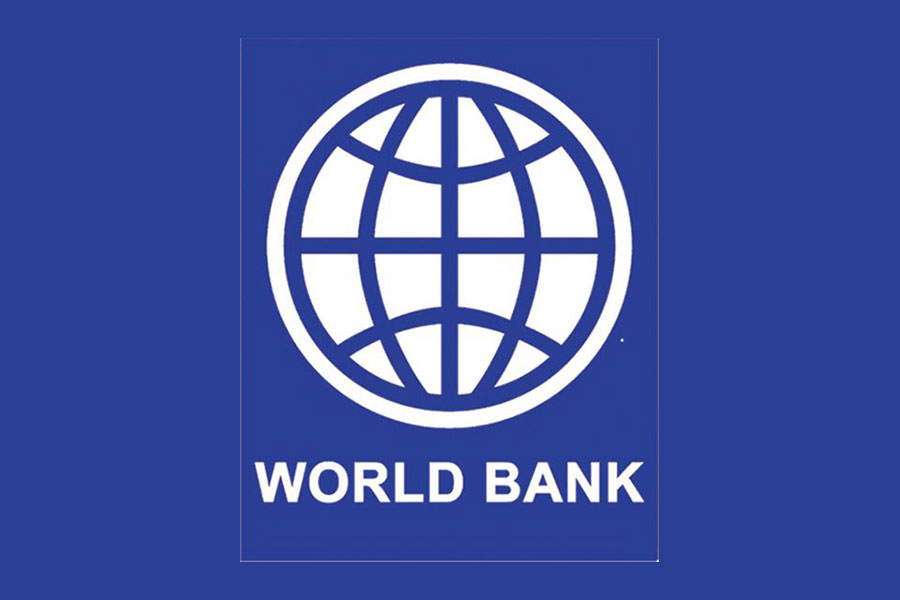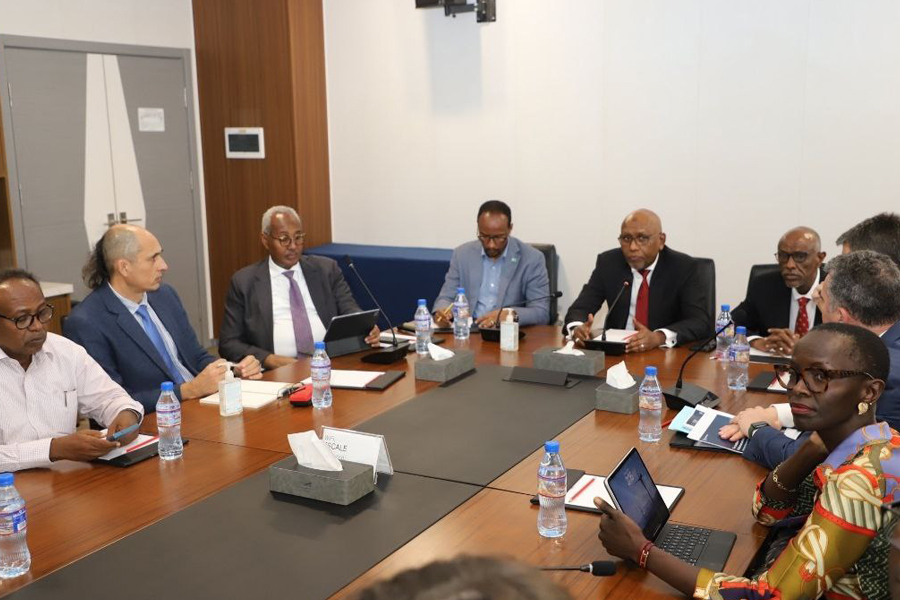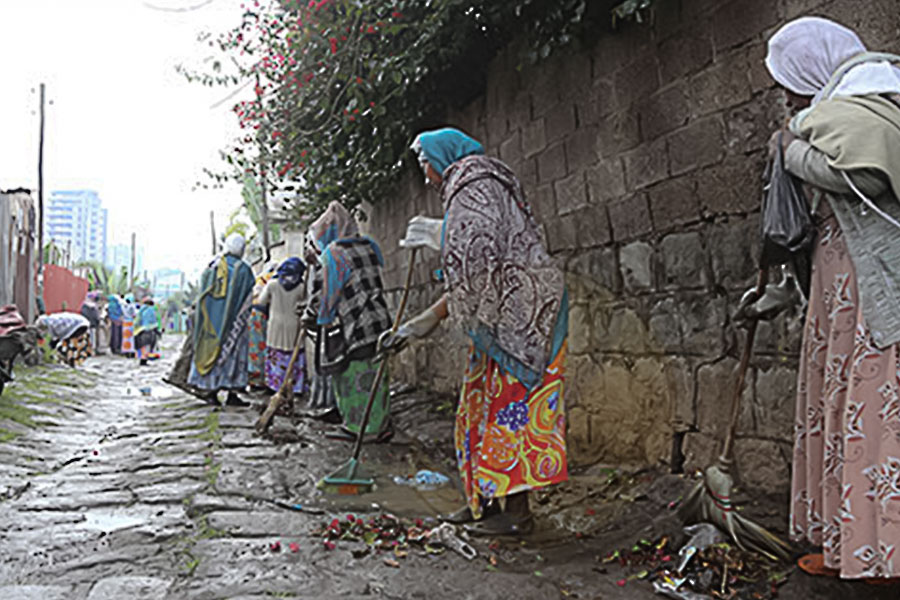
Agenda |
Feb 18 , 2023
By Bjorn Lomborg
In 2000, something remarkable happened: the world came together and committed to a short list of ambitious targets, which became known as the Millennium Development Goals (MDGs). The objectives — to reduce poverty, fight disease and keep kids in school — essentially boiled down to eight specific, verifiable goals, subject to a hard deadline of 2015.
Over that decade-and-a-half, governments, international institutions, and private foundations poured in billions more than they had before to achieve 21 targets within the eight goals. International development aid alone almost doubled in real terms.
Global funding for child health increased eightfold from less than an annual billion dollars in the 1990s to eight billion dollars in 2015. While we did not reach all the targets, this considerable investment unsurprisingly turbocharged progress.
More children were retained in school, and gender equality improved. Low-income countries across the world saw death rates drop much faster than before. In 1990, nearly one child in 10 died before age five. Child deaths had fallen by more than half by 2015. That adds up to almost 19 million children surviving their fifth birthday that would otherwise have died.
There was a dramatic reduction in hunger: it went from afflicting 16pc of the world’s population in 1990 to around eight percent in 2015. That meant 300 million people avoided the lifelong effects of hunger and malnutrition. And the fight against poverty was also accelerated, cutting the total number of poor by an astounding 1.2 billion people.
Thanks to the MDGs, the world has become a much better place for the poor and vulnerable. While some targets like clean drinking water and sanitation did not accelerate, all experienced dramatic improvements, making life less complicated, with less hunger, poverty and dirty water, with more schooling and less death from tuberculosis, malaria and HIV, and with mothers and children dying much less.
But in 2015, when the world replaced the MDGs, things went wrong.
World leaders could again have chosen to focus on a few crucial targets. They could have kept the same targets since they are important to the world’s most vulnerable people. We could have focused on pinpointing the deepest needs and the most significant opportunities.
Instead, the United Nations and world leaders came up with a hodge-podge, absurdly long list of 169 targets for the world to achieve in the 15 years to 2030: the Sustainable Development Goals (SDGs).
The SDGs promise to do critical things, like eradicating poverty and hunger, getting rid of diseases, and ending war and global warming. They also set targets for more peripheral issues like providing green spaces.
Having 169 targets is the same as having no priorities at all. And the inevitable result is that we are falling behind on essential development measures.
This year, we are at halftime of the SDGs. Yet, with our current progress, even before the setbacks of Covid, we will likely be half a century late on our promises.
Ethiopia is progressing better than many other countries but is still far behind the goal line. Judging by the progress made between 2015 and 2019, it is set to complete the SDGs around 2075.
We could be the generation that fails all or almost all of our promises; it is a consequence of not prioritizing.
How do we fix things from here?
We need to prioritize which targets matter most. For most people, less hunger and better education matter more than well-meaning pledges of increased recycling and global awareness of lifestyles in harmony with nature (two of the 169 targets).
We must also acknowledge that some challenges can be fixed with cheap and straightforward policies. Some cannot. Assuring peace and ending all violence, crime, and corruption is laudable, but it isn't easy to achieve. There is little knowledge of how to get there.
In contrast, we know how to fix many pervasive problems effectively at a low cost.
Tuberculosis is entirely treatable and has been so for over half a century. Yet, it still quietly kills more than 1.5 million people annually. While nine out of 10 rich country 10-year-olds can read and write, only one-in-10 can do so in the world’s poorest countries. And yearly, more than two million children and 300,000 women die during childbirth.
All these problems have practical and effective solutions. They should get our full attention. But they do not.
We will succeed when we are honest and set priorities. Let us not be the generation that just failed the global promises. Instead, let’s become the generation that does the most effective things best and first.
PUBLISHED ON
Feb 18,2023 [ VOL
23 , NO
1190]


Agenda |

Life Matters | Aug 17,2019

Radar | Jun 25,2022

Fortune News | Jun 22,2024

Radar | Nov 30,2019


Life Matters | May 04,2019

My Opinion | Mar 25,2023

Viewpoints | Jul 26,2025

Commentaries | Jun 08,2019

Photo Gallery | 178395 Views | May 06,2019

Photo Gallery | 168595 Views | Apr 26,2019

Photo Gallery | 159391 Views | Oct 06,2021

My Opinion | 137072 Views | Aug 14,2021
Commentaries | Oct 25,2025

Dec 22 , 2024 . By TIZITA SHEWAFERAW
Charged with transforming colossal state-owned enterprises into modern and competitiv...

Aug 18 , 2024 . By AKSAH ITALO
Although predictable Yonas Zerihun's job in the ride-hailing service is not immune to...

Jul 28 , 2024 . By TIZITA SHEWAFERAW
Unhabitual, perhaps too many, Samuel Gebreyohannes, 38, used to occasionally enjoy a couple of beers at breakfast. However, he recently swit...

Jul 13 , 2024 . By AKSAH ITALO
Investors who rely on tractors, trucks, and field vehicles for commuting, transporting commodities, and f...

Oct 25 , 2025
The regulatory machinery is on overdrive. In only two years, no fewer than 35 new pro...

Oct 18 , 2025
The political establishment, notably the ruling party and its top brass, has become p...

Oct 11 , 2025
Ladislas Farago, a roving Associated Press (AP) correspondent, arrived in Ethiopia in...

Oct 4 , 2025
Eyob Tekalegn (PhD) had been in the Governor's chair for only weeks when, on Septembe...

Oct 25 , 2025 . By YITBAREK GETACHEW
Officials of the Addis Abeba's Education Bureau have embarked on an ambitious experim...

Oct 26 , 2025 . By YITBAREK GETACHEW
The federal government is making a landmark shift in its investment incentive regime...

Oct 29 , 2025 . By NAHOM AYELE
The National Bank of Ethiopia (NBE) is preparing to issue a directive that will funda...

Oct 26 , 2025 . By SURAFEL MULUGETA
A community of booksellers shadowing the Ethiopian National Theatre has been jolted b...